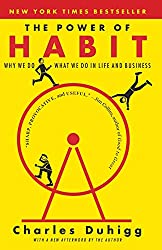
Rating: 7.3/10.
The Nomadic Developer: Surviving and Thriving in the World of Technology Consulting by Aaron Erickson Erickson
Book about technology consulting firms, how their business works, and how to succeed in one. Essentially, consulting companies sell the hours of their consultants to clients. The sales team tries to add work to the “backlog” to be done, and the company charges clients by the hour while paying the consultants a fixed salary. The hourly rate of a consultant is typically twice that of a salaried employee because realistically consultants cannot be working (utilized) all the time, and there is additional overhead of benefits, taxes, etc. Companies typically hire consultants because they don’t have enough regular work to justify hiring an employee. For the consultant, the benefit is the diversity of the work and building a network of connections, which is useful during times of layoffs.
There are several anti-patterns of consulting firms that can make them a miserable place to work. Sales-driven consulting firms promise a lot to the clients without consulting the engineering team with regard to feasibility. Cheap consulting firms that differentiate solely on price and deliver low-quality work, and likely work developers hard to extract more hours than their salary entails. Companies with a product may pretend to be consulting but are actually hired to promote the company’s product.
The high-level structure of a consulting firm: first, the sales process is to generate demand. Getting to the first meeting takes a lot of work and networking with clients, and then there are several more meetings to determine the client’s problems, sending out a proposal, signing a contract, and finally starting the work. On the other side, recruiters work on increasing the supply of consultants. There are several layers of management; general managers (GMs) manage consulting teams, and clients, whereas most senior managers steer the strategic direction of the company instead of day-to-day operations. Then there’s overhead, which is anybody not directly contributing to revenue, like accounting, HR, and IT. It’s especially dangerous to become part of the overhead, as you will likely be cut during layoffs.
Several chapters provide advice on how to succeed in a consulting firm. Always be willing to learn, improve your skills, network with people, and be easy to work with. To avoid being laid off, don’t complain about working conditions, even if it is bad, and put in extra effort to satisfy the client. Don’t be too demanding about salary and consider offering to take a pay cut. Avoid career-limiting moves like getting drunk at company events, dating coworkers, cutting corners in your work, padding hours, and especially requesting to be removed from a project you dislike.
The last chapter compiles advice and experiences from consultants with successful careers — you get to see office politics and issues that arise when requirements are miscommunicated or clients are overpromised. It’s essential to understand what the client truly desires to prevent wasting time on irrelevant tasks. While most of the book is about consulting firms, a few people in the last chapter are independent consultants, and for this path, it is recommended to build a personal brand and being recognized as an expert in a topic: one method to achieve this is through writing books, although it may take time to see results.
This book has a fairly pessimistic outlook on the career of a prospective software developer. Partially, this is because it was written in 2009, after the great recession and one of the worst times to be a software engineer. Much of the advice is basically to suck it up to management and clients, consider yourself lucky to have a job at all, and do everything you can to avoid being laid off. The word “nomadic” in the title doesn’t refer to traveling while working, as in a digital nomad (which is a much more recent phenomenon), but instead just means working for different clients. It’s assumed that you will work about 60 hours a week, after factoring in travel time (remote work was not common back then). Software engineering positions were more desirable, but there were fewer companies at that time whose core product was software, so it was much more difficult to find a salaried software developer job than it is today. A lot of the basic economic principles of consulting firms are still relevant, but the software job market has drastically since the book was written.



